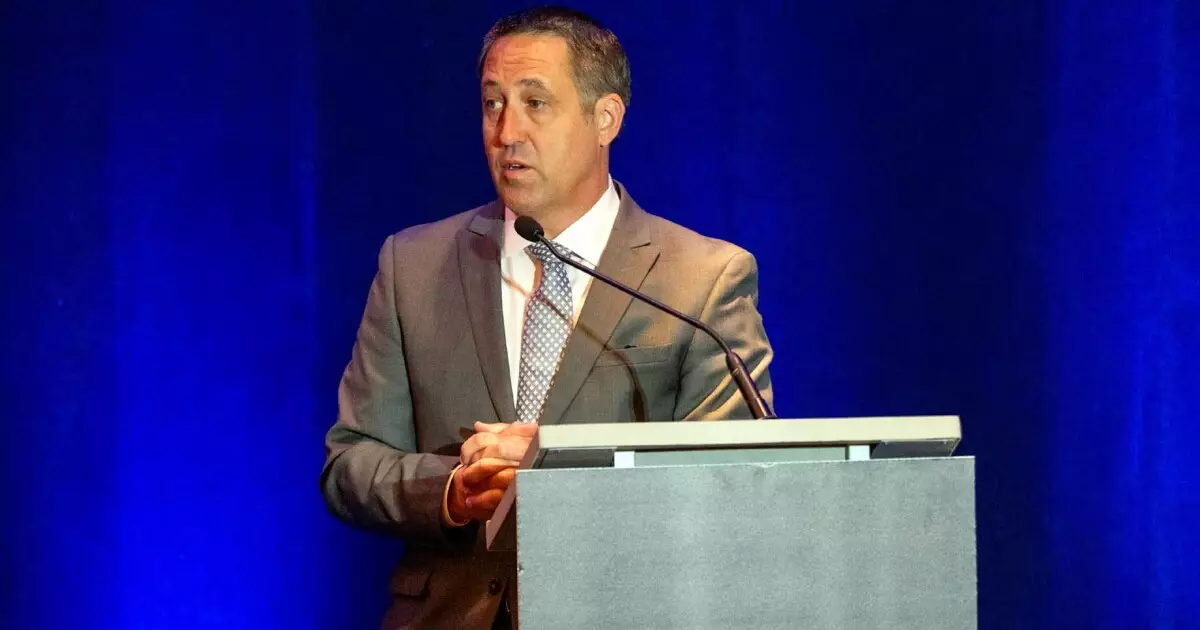The news of BlackRock Inc. being removed from Texas’ blacklist of companies that “boycott” fossil fuels comes as both a surprise and a stark indicator of changing corporate dynamics. After three long years of being sidelined, this decision opens doors for a potential resurgence of fossil fuel investments in what can only be described as a capitulation to power politics. Texas, a state deeply rooted in oil, gas, and a strong conservative ethos, has recalibrated its stance, raising questions about the pressures that led to this pivotal shift.
BlackRock’s Strategic Retreat: Environmental Concerns Diminished
Under the stewardship of CEO Larry Fink, BlackRock has been known for championing environmental, social, and governance (ESG) initiatives. However, the company’s recent decision to abandon its participation in efforts like the Net Zero Asset Managers initiative hints at a troubling retreat from these commitments. In a market increasingly defined by climate consciousness, this backward step could signify that financial performance might take precedence over long-term sustainability goals. It’s a disheartening reality when profit motives seem to overshadow the need for responsible corporate behavior, especially from a firm as influential as BlackRock.
The Politics of Profit: A Win for Lobbying Power
What stands out most in this saga is the palpable intertwining of financial interests with political influence. By reinstating relationships with Texas entities managing over $300 billion in assets, BlackRock has undeniably demonstrated the potency of corporate lobbying. It’s worth noting that the firm’s participation in conservative political events reflects a strategic pivot, one that can arguably compromise its integrity and commitment to environmental stewardship. This begs the question: Are such alliances built on shared values, or are they merely transactional relationships?
The Road Ahead: Risks of Reduced Accountability
The implications of BlackRock’s reintegration into Texas’s investment landscape are far-reaching. With pension funds once again open to investing in the firm, there’s a risk that accountability in environmental matters could further dissolve. Employees and constituents who favor environmentally responsible practices might find their interests sidelined in the rush to tap into fossil fuel investments. This could create a ripple effect across other states and industries where corporate actions are increasingly dictated by short-term profits rather than long-term viability and ethical considerations.
Consumer Response: The Rising Urgency of Ethical Investment
As public awareness around climate change and corporate responsibility grows, it’s essential that consumers and investors alike hold firms like BlackRock accountable. The growing popularity of sustainable investing showcases an essential consumer shift; ignoring these trends in favor of political maneuvering may ultimately backfire. Investors need to demand transparency and adherence to ethical practices from BlackRock if they wish to truly invest in a sustainable future. Ignoring this mandate could lead to public backlash against the firm as consumers express their disenchantment with hollow corporate promises.
BlackRock’s recent political maneuvering in Texas reflects a greater narrative within corporate America, about the need for balance between profitability and principled responsibility. As influential players transform their strategies, it’s vital to monitor whether accountability to the public interest can persist in the wake of such corporate shifts.

